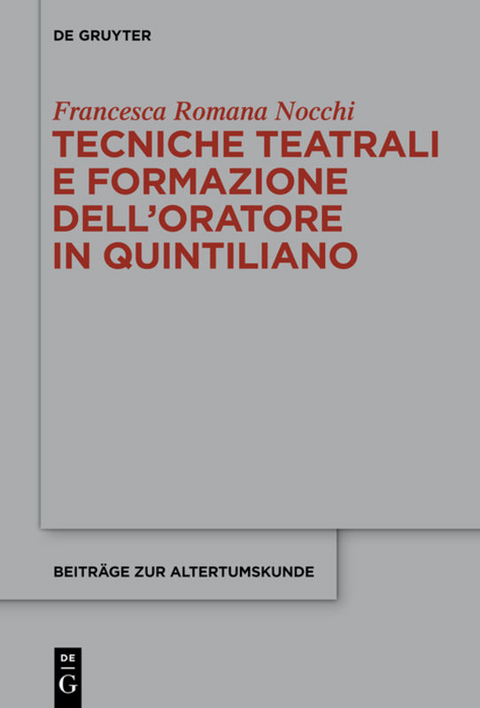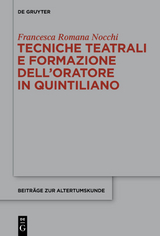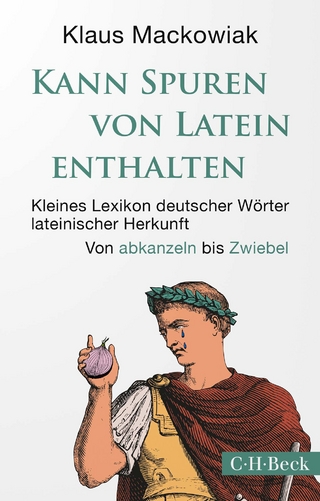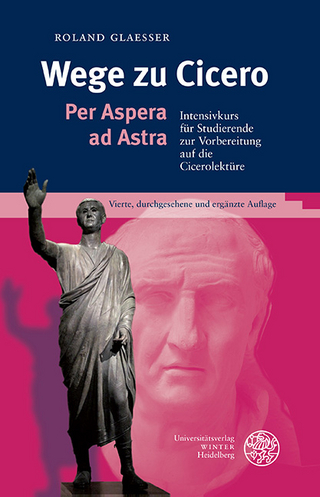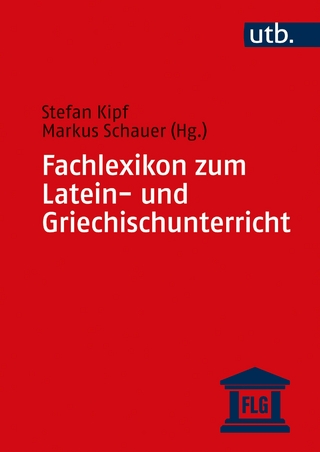Tecniche teatrali e formazione dell’oratore in Quintiliano
Seiten
Die Beiträge zur Altertumskunde enthalten Monographien, Sammelbände, Editionen, Übersetzungen und Kommentare zu Themen aus den Bereichen Klassische, Mittel- und Neulateinische Philologie, Alte Geschichte, Archäologie, Antike Philosophie sowie Nachwirken der Antike bis in die Neuzeit. Dadurch leistet die Reihe einen umfassenden Beitrag zur Erschließung klassischer Literatur und zur Forschung im gesamten Gebiet der Altertumswissenschaften.
The volume focuses on the evidence of scenic art present in Quintilian’s Institutio oratoria to verify its influence on the education of the speaker. The enquiry will also make reference to all Greek and Latin sources useful in highlighting the mutual dependence between oratory and theater from the fifth century B.C. to the second century A.D. The most important area of investigation concerns the teaching of comoedus, master of diction and gestures. The fields of specialization and methods configured by Quintilian recall in detail the training process followed by Demosthenes to achieve excellence in the actio under the guidance of different actors; this close similarity suggests a persistence of training relationships between theater and oratory. The choice of comoedus is based on well-defined selection criteria: in particular, the comedy seems to have replaced the tragedy as the teaching model in the imperial era because of its greater verisimilitude. The enquiry extends to the acting techniques used in the imperial era, with particular attention to the mask and the strategies of identification that the actor could suggest to the speaker to activate the process of sympatheia with the public.
The volume focuses on the evidence of scenic art present in Quintilian’s Institutio oratoria to verify its influence on the education of the speaker. The enquiry will also make reference to all Greek and Latin sources useful in highlighting the mutual dependence between oratory and theater from the fifth century B.C. to the second century A.D. The most important area of investigation concerns the teaching of comoedus, master of diction and gestures. The fields of specialization and methods configured by Quintilian recall in detail the training process followed by Demosthenes to achieve excellence in the actio under the guidance of different actors; this close similarity suggests a persistence of training relationships between theater and oratory. The choice of comoedus is based on well-defined selection criteria: in particular, the comedy seems to have replaced the tragedy as the teaching model in the imperial era because of its greater verisimilitude. The enquiry extends to the acting techniques used in the imperial era, with particular attention to the mask and the strategies of identification that the actor could suggest to the speaker to activate the process of sympatheia with the public.
F. R. Nocchi, Università degli studi di Cassino e del Lazio Meridionale, Rome.
| Erscheint lt. Verlag | 19.8.2013 |
|---|---|
| Reihe/Serie | Beiträge zur Altertumskunde ; 316 |
| Verlagsort | Berlin/Boston |
| Sprache | italienisch |
| Maße | 155 x 230 mm |
| Gewicht | 484 g |
| Themenwelt | Kunst / Musik / Theater ► Theater / Ballett |
| Geisteswissenschaften ► Sprach- / Literaturwissenschaft ► Latein / Altgriechisch | |
| Geisteswissenschaften ► Sprach- / Literaturwissenschaft ► Literaturwissenschaft | |
| Geisteswissenschaften ► Sprach- / Literaturwissenschaft ► Sprachwissenschaft | |
| Schlagworte | Bildung • Education • Education; oratory/rhetoric; Quintilian; theater • Education; rhetoric; Quintilian; theater • Quintilian • rhetoric • Rhetorik • Theater |
| ISBN-10 | 3-11-032446-6 / 3110324466 |
| ISBN-13 | 978-3-11-032446-4 / 9783110324464 |
| Zustand | Neuware |
| Haben Sie eine Frage zum Produkt? |
Mehr entdecken
aus dem Bereich
aus dem Bereich
kleines Lexikon deutscher Wörter lateinischer Herkunft
Buch | Softcover (2023)
C.H.Beck (Verlag)
15,00 €
Per Aspera ad Astra. Intensivkurs für Studierende zur Vorbereitung …
Buch | Softcover (2023)
Universitätsverlag Winter GmbH Heidelberg
23,00 €
